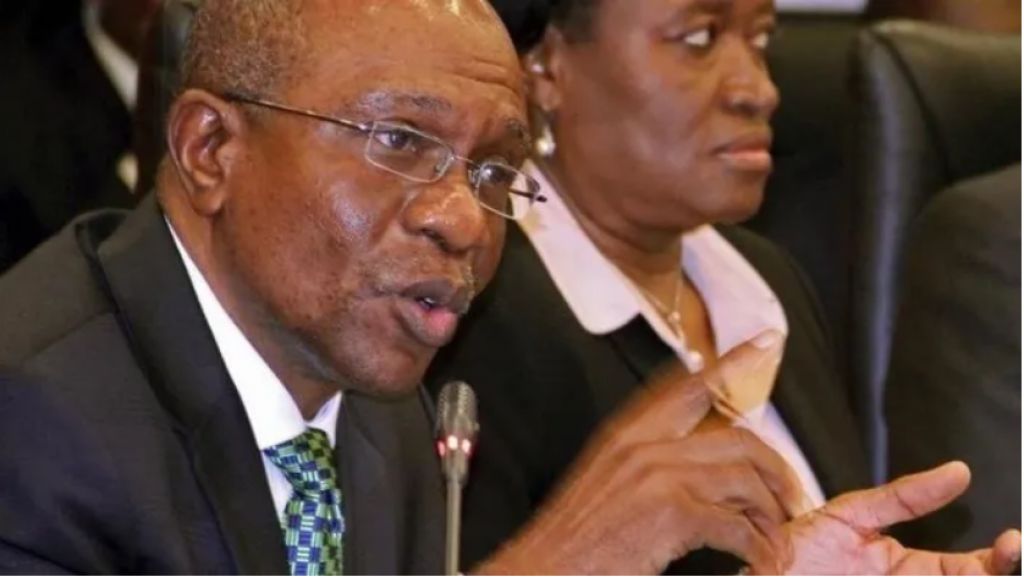Nigeria’s Central Bank recently fined lenders for failing to follow regulations prohibiting customers from transacting in cryptos.
Nigeria’s Central Bank recently fined lenders for failing to follow regulations prohibiting customers from transacting in cryptos. The apex bank introduced the penalties to ensure commercial lenders implement a February 2021 order to block crypto trading because of the threat they deem cryptos to pose to Nigeria’s financial system.
The introduction of the eNaira by the CBN in October 2021 is yet to impact Nigeria’s flare for cryptocurrency. However. reports show that Nigeria has the highest proportion of retail users who make transactions under $10K.
Bitcoin has been the subject of controversy among the elites of traditional finance since its introduction in a whitepaper in 2008. For cryptocurrency enthusiasts, the launch of cryptocurrencies marks the arrival of a new and equitable monetary system. The CBN earlier pointed to cryptocurrency’s role in criminal activity and the lack of legal recognition as justification for opposing the digital asset.
In Nigeria, the CBN is primarily responsible for financial stability, handling the financial ecosystem through its monetary policies. There is a chain of trust between transacting parties in the Nigerian economy, which involves borrowers, lenders, and consumers. As the final link in the chain, the CBN is also known as the lender of last resort.
The CBN distributes and regulates money in an economy through intermediaries, such as banks and financial institutions. Their control of the enterprise-level payment infrastructure and settlement systems allows them to dominate the domestic payment system. This power balance has so far held.
However, the advent of crypto and the abridgment of settlement systems that respect jurisdictional borders threatens to unbalance the domestic and international realms. CBN’s issue with Cryptocurrencies is clearly not liked by the CBN. They offer alternative money, which is an intrusion into their turf. This is why the Bank for International Settlements, the central banks’ bank, does not look favorably on innovation.
Bitcoin’s network can streamline the process of creating and distributing currencies, rather than relying on a centralized infrastructure like that operated by the CBN. Home computers can generate bitcoins. Peer-to-peer transfers between Bitcoin addresses do not require intermediaries. The distribution of cryptocurrency does not require a network of banks chartered by a central authority.
In contrast, cryptocurrencies are a decentralized means of establishing trust. They share authority within the network rather than relying on centralized validation as seen on the CBN’s network. As opposed to bank and central bank ledgers that are held centrally, a distributed ledger (among users) records all transactions in an ever-lengthening set of digital blocks called a blockchain. ‘Miners’, or key holders, are paid a fee for adding another digital block to the distributed ledger, which is verified by a network of users and miners.
Naturally, Nigerian banks are unhappy about being made obsolete, and they are working with the CBN to clamp down on crypto after initially dismissing them out of hand. It is generally the bank’s policy to charge fees for any action they take with money, even just keeping in a bank account. Because banks have built a level of trust that transactions pass smoothly and everything is accounted for, crypto is changing that and weakening their grip on many young Nigerian citizens that make up a large junk of the population.
Bitcoin supporters argue that the Central Bank of Nigeria is creating money out of thin air, the currency is unbacked by tangible assets. They claim the CBN manipulates the supply of money to create inflationary pressures and asset bubbles in the economy. Because imports could lower the value of a currency, capital controls were often instituted by the CBN.
Others view it as another way for the CBN to exert control over economic and fiscal policy. As a result, the stateless nature of bitcoin is useful for circumventing capital controls and exporting wealth.
The bottom line is that the crypto market has become a hot button issue for the Nigerian apex bank, and it alternates between criticizing it and investigating its application. While it may have the potential to decentralize and change the functioning of the existing financial infrastructure, Nigeria’s apex bank is still wary of it.
In the meantime, bitcoin will continue to provoke distrust and criticism from established authorities like the CBN until its ecosystem matures and it has a clear use case. The CBN needs to understand that the crypto market could prove to be a powerful ally in solving the financial puzzles many unbanked Nigerians face. With full knowledge that they provide cheaper, faster, and secure cross-border money transfers.





















comment Leave A comment
No one has commented on Why CBN Prohibits Nigerian Banks from Crypto Transactions post yet, write something about the post.
CLick on the "Leave A Comment" button